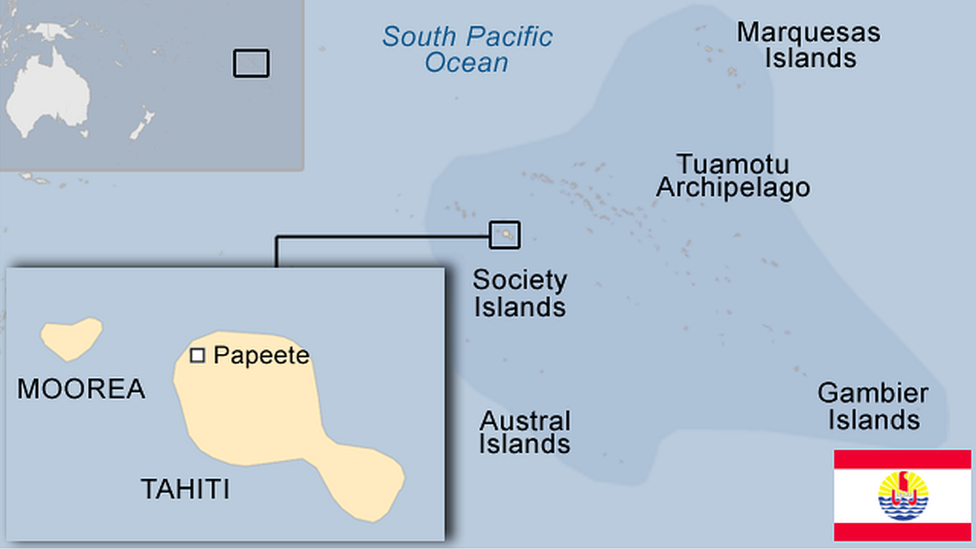Tonga country profile
- Published
This page is no longer being updated. It was last updated on 23 August 2023

A group of more than 170 islands spread over an area of the South Pacific roughly the size of Japan, Tonga is the last Polynesian monarchy.
A deeply conservative, Christian country, Tonga voted in its first popularly elected parliament in 2010, ending 165 years of feudal rule. In 2015, the country elected its first non-noble prime minister.
A former British protectorate, Tonga became fully independent in 1970, although it was never formally colonised.
Tonga has no strategic or mineral resources, and relies on agriculture, fishing and the money sent home by Tongans living abroad, many of them in New Zealand. Unemployment is high, particularly among the young.
Characterised by tropical beaches, rainforest, and active volcanoes, it has a developing tourist industry - its main source of hard currency.
See more country profiles , external- Profiles by BBC Monitoring, external
KINGDOM OF TONGA: FACTS
Capital: Nukuʻalofa
Area: 748 sq km
Population: 100,200
Language: Tongan, English
Life expectancy: 69 years (men) 75 years (women)
LEADERS
Head of state: King George Tupou VI
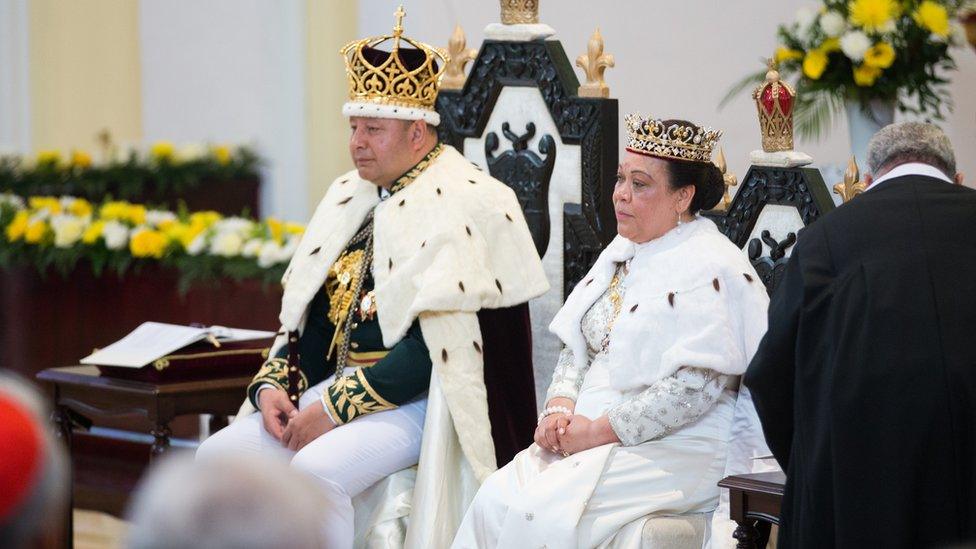
King Tupou VI of Tonga and Queen Nanasipau'u
George Tupou VI succeeded to the throne on the death of his elder brother, the bachelor George Tupou V, in March 2012.
King George Tupou V ushered in parliamentary democracy in 2010, ending centuries of feudal dominance of government.
Prime minister: Siaosi 'Ofakivahafolau Sovaleni
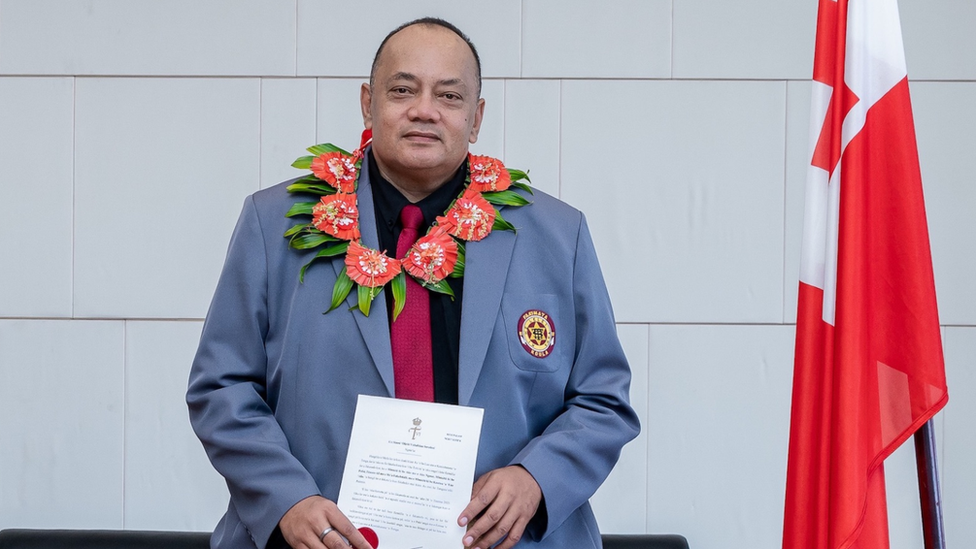
Mr Sovaleni became prime minister after the November 2021 elections, having served in the previous governments of Pohiva Tu'i'onetoa and 'Akalisi Pohiva.
He had fallen out with Mr Pohiva in 2017 during a power struggle between the prime minister and King George Tupou VI.
When Mr Pohiva returned to power at the end of the year, Mr Sovaleni went into opposition, returning to government under Pohiva Tu'i'onetoa in 2019.
MEDIA
State radio and TV tend to be pro-government, while private broadcasters offer little independent local coverage.
Privately-owned newspapers carry opposition views, but journalists can face harassment and threats of criminal charges. A Department of Information oversees all media reporting, US-based Freedom House notes.
Read full media profile
TIMELINE
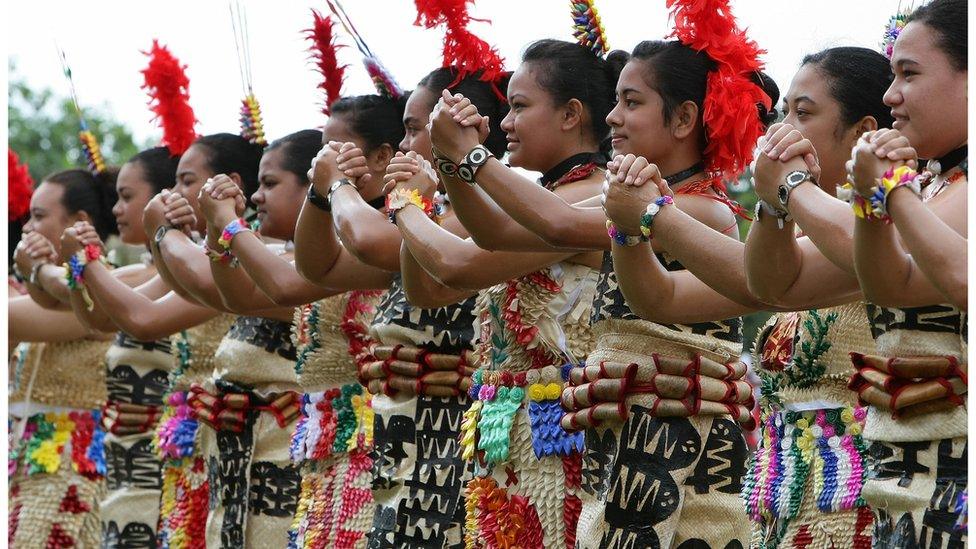
Dancers in traditonal costume
Some key events in Tonga's history:
c. 1500-1000BC - Tonga is first settled during this period.
c. 890BC - Archaeological evidence for settlement at Nukuleka.
1200-1500AD - Tuʻi Tonga Empire, or Tongan Empire: Period of Tongan expansionism across Oceania which began around 950 CE, reaching its peak during this period. Tongan rulers receive tributes from areas including Fiji, Samoai and Vanuatu.
1616 - Dutch explorers are the first Europeans to visit Tonga.
1773-77 - British explorer Captain James Cook visits Tonga three times.
1830s - Wesleyan missionaries convert paramount chief Taufa'ahau Tupou who in turn converts fellow islanders.
1875 - Taufa'ahau Tupou assumes the name of George Tupou I and establishes Tongan monarchy.
1900 - Tonga becomes a British protected state but is not formally colonised.
1918-65 - Reign of Queen Salote Tupou III.
1958 - Tonga acquires greater autonomy from Britain.
1965 - Taufa'ahau Tupou becomes king following his mother's death.
1970 - Tonga ceases to be a British protectorate and becomes fully independent within the British Commonwealth.
1999 - Tonga becomes a member of the UN
2007 - Tonga becomes the 151st member of the World Trade Organization.
2010 - First vote for a popularly elected parliament.
2022 - Major volcanic eruption causes tsunami and major destruction.
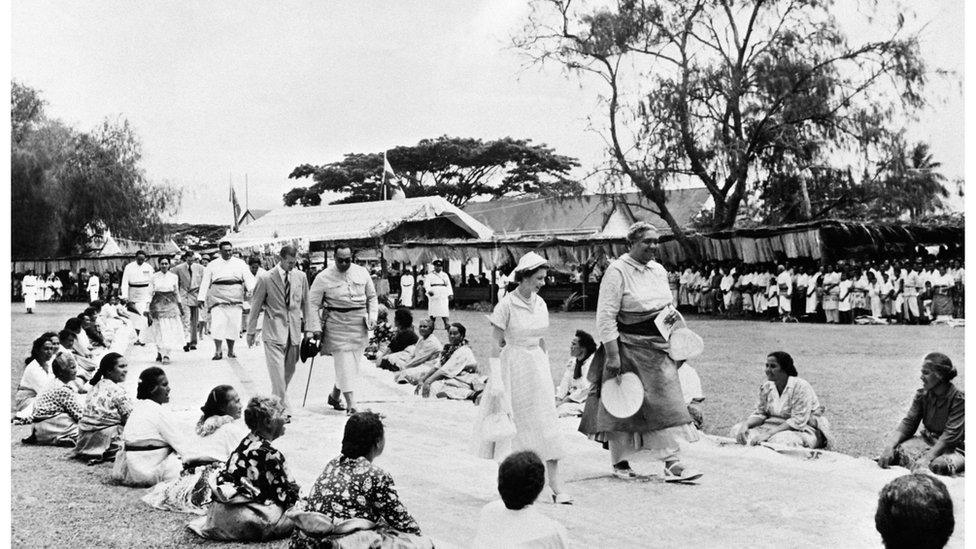
Britain's Queen Elizabeth II and Salote, Queen of Tonga, during a visit in 1953
Related topics
- Published24 May 2024
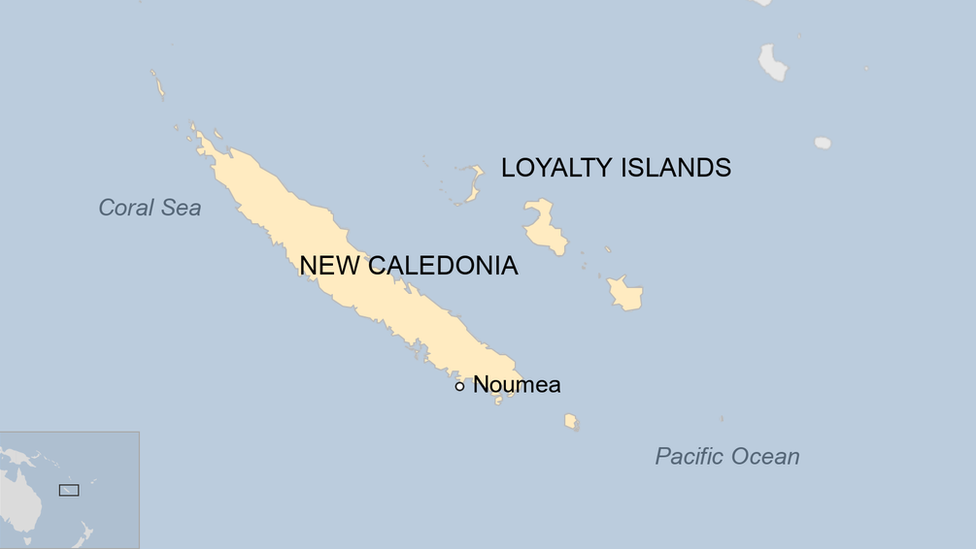
- Published23 August 2023
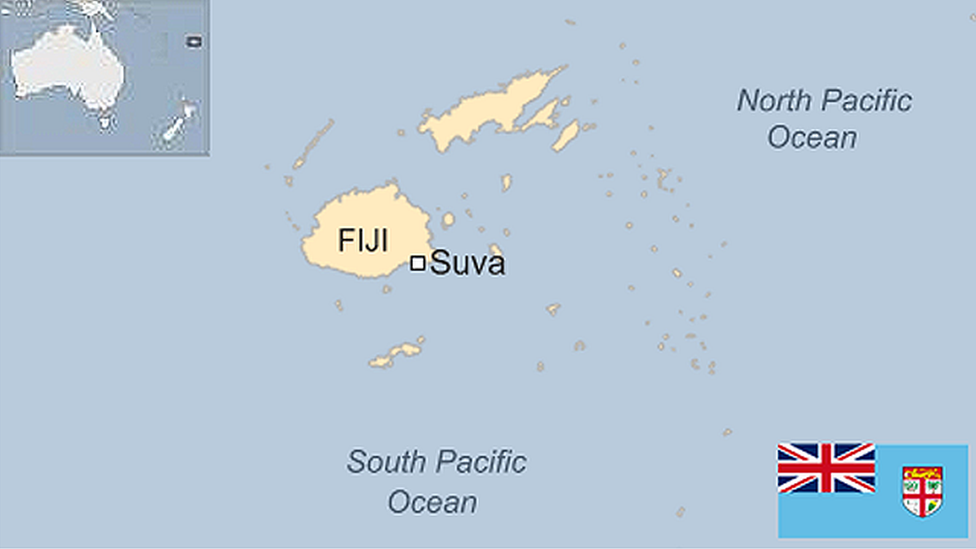
- Published27 October 2023
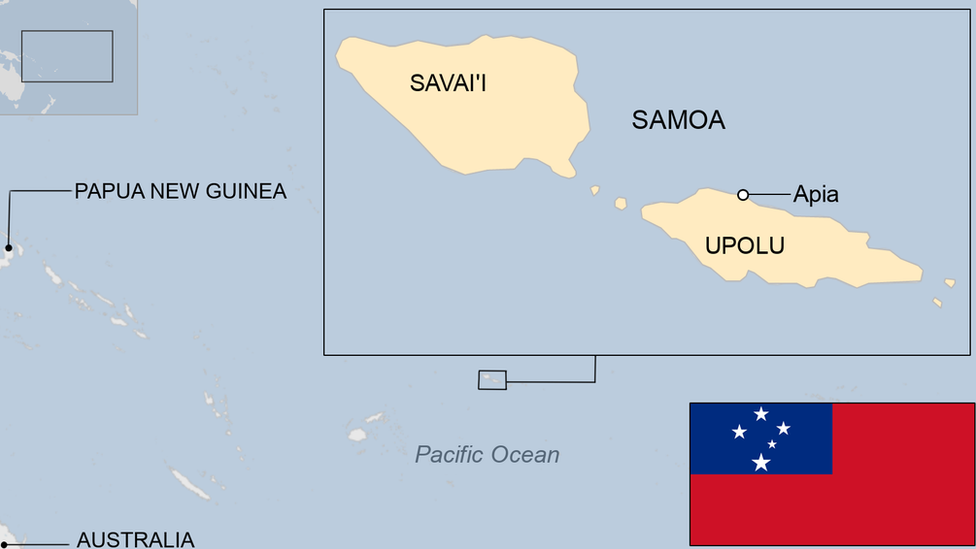
- Published23 August 2023
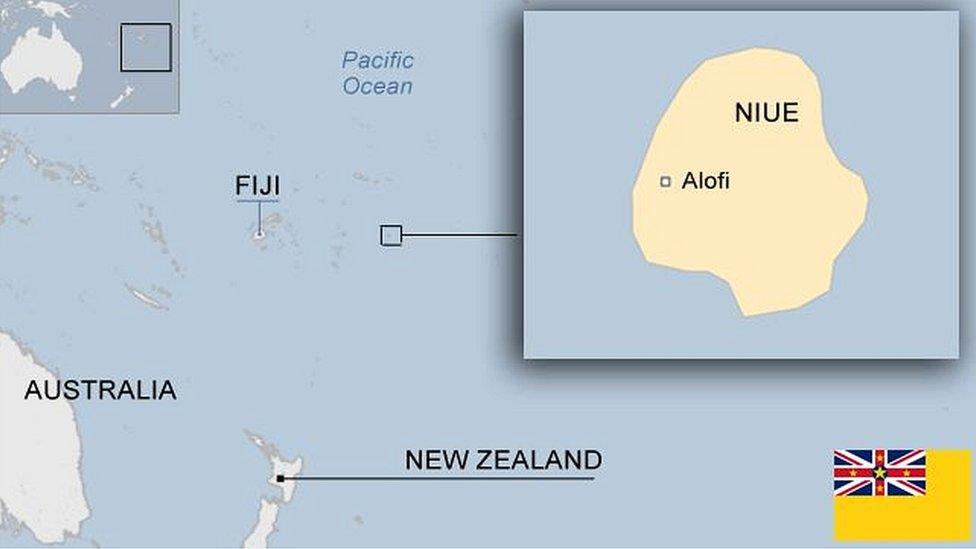
- Published23 August 2023
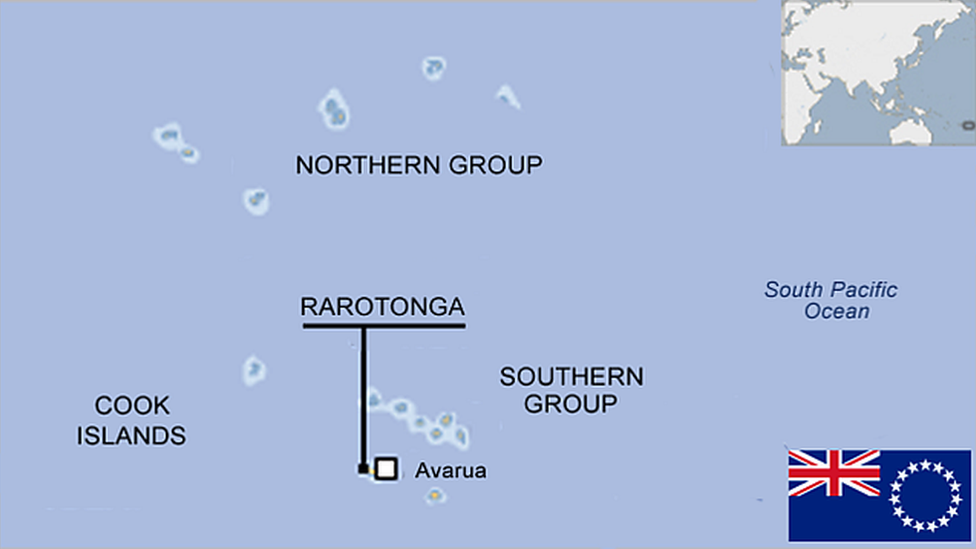
- Published6 June 2023
